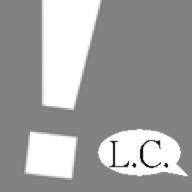1.受詞不計在內的排除
except (for) = excluding = save = but = other than
2.受詞包括在內,有補充意思的排除
besides = as well as = in addition to = along with = no less than = together with = plus = including = on top of
3.兩種用法皆可,須由前後文決定
aside from = apart from
Q1:
http://tw.knowledge.yahoo.com/question/question?qid=1010081408490
最佳解答與我的認知多處不同,請解惑。
Q2:
Pets are not allowed in here excepting guide dogs.
老師說excepting = except = ,excluding
何以excluding前要加逗號?
He wrote an article regarding(=concerning) environmental pollution.
regarding和concerning與excluding同樣都是現在分詞當介係詞,卻不用加逗號?
Q3:
有文法書說,but做「除了」解釋,可以當作連接詞,列兩例句如下:
An hour late for dinner, he couldn't sit down but circled the long dining room table.
He does everything in the house but put the children to bed.
這兩句but後面,第一句用過去,第二句卻用原型,原因何在?
該文法書在其他篇章又說:but後面其實是省略to的不定詞,當有do在前面時,to常被省略,但非強制,並列舉許多例子,其中又包括例句2,這不就違背連接詞前後須平行對稱的要求,而認定例句2之but在此句其實是做介係詞,後接不定詞做受詞?
更新1:
感謝天魔小雲的回答,Q3是摘自 英文常見問題大詞典(趙振才著) 從該書的多篇相關論述約可總結出兩點 1.表例外的兩詞彙but及except可與「帶to的不定詞」、「不帶to的不定詞」及「動名詞」連用,惟but接動名詞較罕見。 至於but/except的詞性是介係詞還是連接詞,語言學家沒一致的結論。 2.but/except前若有動詞do則to可選擇性省略;若是其他動詞則to不可省。
更新2:
但許多參考書明確給出了一套公式 do nothing but V(R) choose/expect/want/desire nothing but to V(R) be interested in nothing but 動名詞/名詞 enjoy nothing but 動名詞/名詞 其解釋方法正如您所說,都將but視為對等連接詞,並拆成兩句來分析。 前有do時究竟是可省還是必省就留待後人探討,至少目前我遇過的英文考題,依循這公式答案都是對的。

